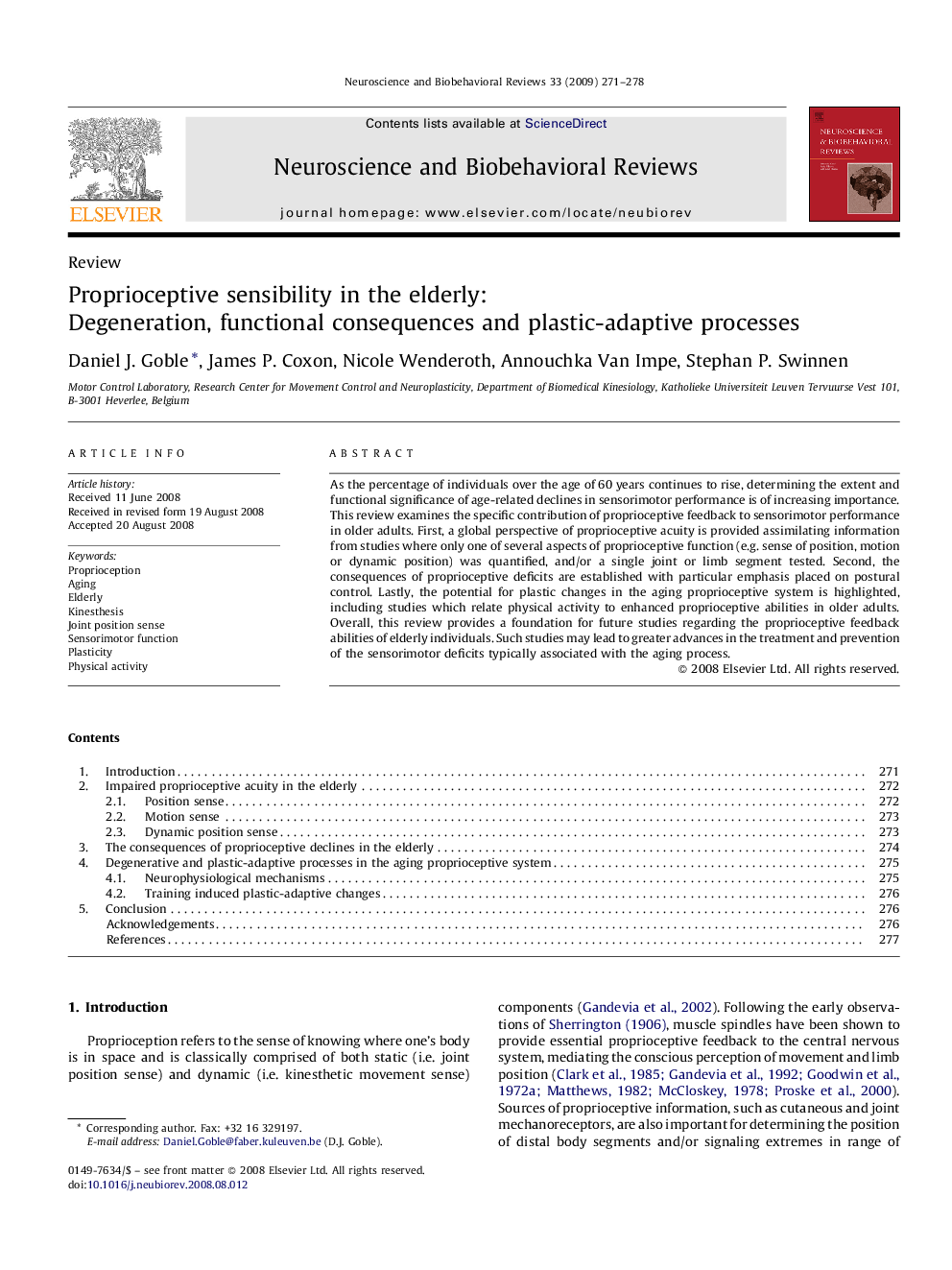| Article ID | Journal | Published Year | Pages | File Type |
|---|---|---|---|---|
| 938168 | Neuroscience & Biobehavioral Reviews | 2009 | 8 Pages |
As the percentage of individuals over the age of 60 years continues to rise, determining the extent and functional significance of age-related declines in sensorimotor performance is of increasing importance. This review examines the specific contribution of proprioceptive feedback to sensorimotor performance in older adults. First, a global perspective of proprioceptive acuity is provided assimilating information from studies where only one of several aspects of proprioceptive function (e.g. sense of position, motion or dynamic position) was quantified, and/or a single joint or limb segment tested. Second, the consequences of proprioceptive deficits are established with particular emphasis placed on postural control. Lastly, the potential for plastic changes in the aging proprioceptive system is highlighted, including studies which relate physical activity to enhanced proprioceptive abilities in older adults. Overall, this review provides a foundation for future studies regarding the proprioceptive feedback abilities of elderly individuals. Such studies may lead to greater advances in the treatment and prevention of the sensorimotor deficits typically associated with the aging process.
